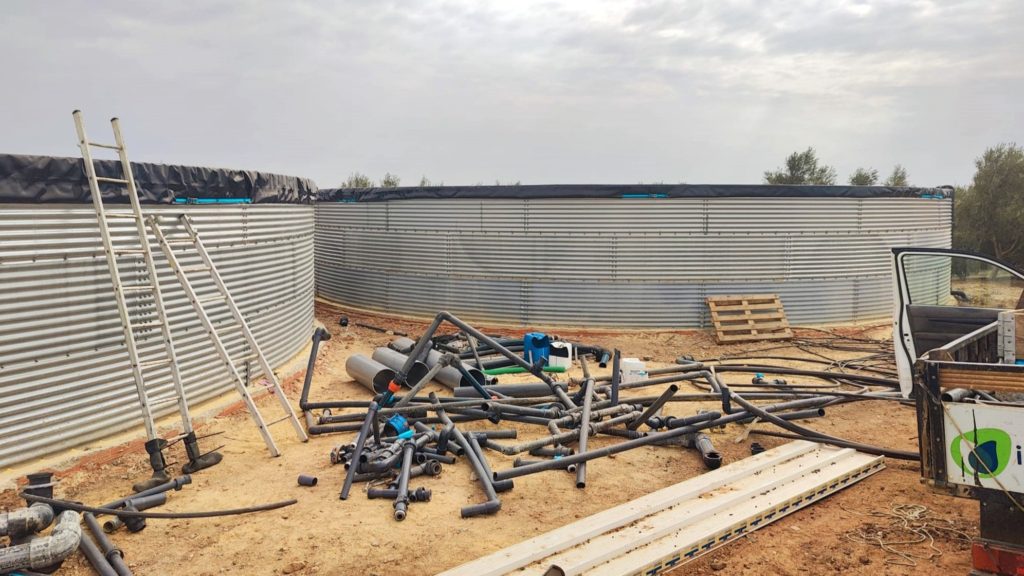Olive oil production in Portugal
The world’s largest and most sophisticated olive oil mill finds its home in the vicinities of Beja, Alentejo. The company operates in the heart of Portugal’s foremost olive oil-producing region. Alentejo is home to 85 percent of Portugal’s olive plantations and contributes to a substantial 77 percent of the country’s overall olive oil production.
Relocating the water tanks
A relocation of the water tanks is needed. This renowned olive oil producer continues to experience annual growth and is currently expanding its factory facilities. As a consequence of this expansion, the customer needs the water tanks to be moved to a newer, bigger and more efficient water treatment plant. They store all the water used on the washing process of the olives upon their arrival to the factory.
NPI water tanks: easy to install and to dismantle
Were you aware that you can easily dismantle and rebuild NPI water tanks? The modular design ensures that you can both install and dismantle these tanks, enabling easy relocation of our water tanks to a location of your choice. This flexibility enables greater customisation and the freedom to make adjustments that serve our customers’ specific needs.

Upgrading the liners
The water tanks were initially lined a decade ago and have now been upgraded to our most recent liners. We dispatched two new liners through our trusted Portuguese dealer to the property. Additionally, the customer installed anti-algae covers on the tanks to shield the water from algae growth, evaporation, leaves and debris.
High quality olive oil in figures
The tanks are now repositioned in their new location. Two new tank liners are in place, and consequently, this olive oil mill stands ready to resume its irrigation plans. The irrigation scheme waters an extensive area of 7,500 hectares planted with olive trees. With 2,000 trees on every hectare, the sight stretches as far as the eye can see. This way you can make yourself an idea of how many trees need watering. Up and running, the mill accounts for the procession of 2000 tons of olives per day (during peak season). And the hard work is paying off: the end product is practically 100 percent extra virgin olive oil. This is the true juice of the olive fruit. Producers mainly sell the olive oil in bulk to Portuguese packers, who then supply the domestic market and operate in international markets.








